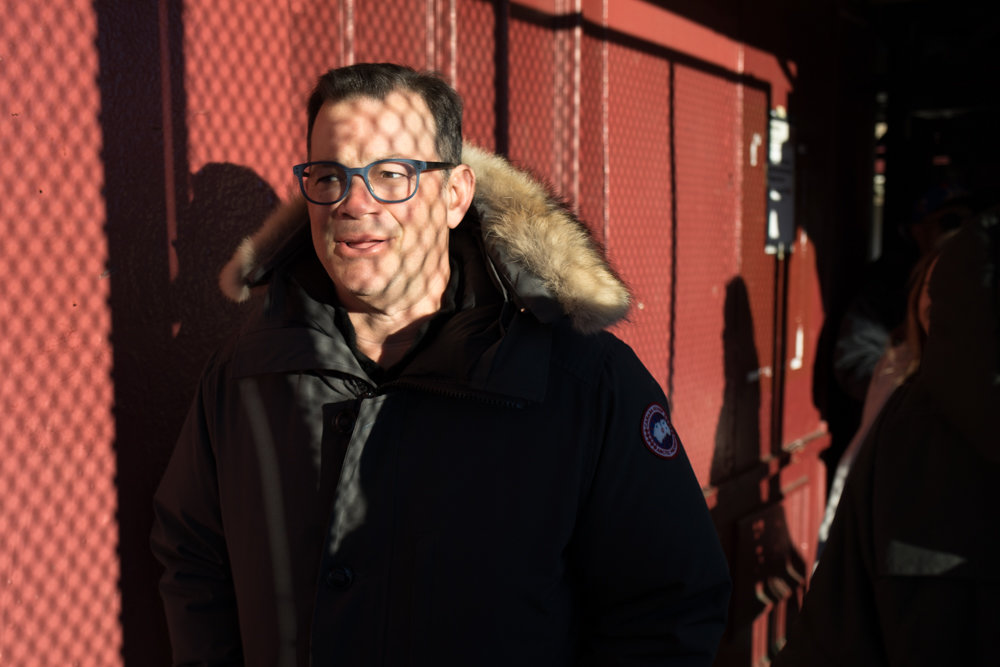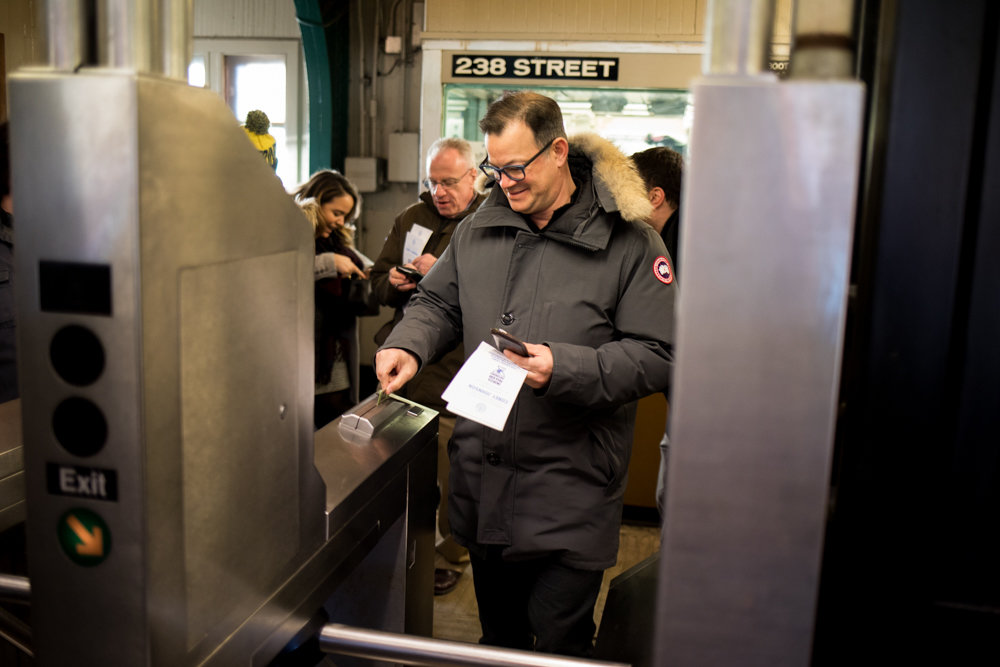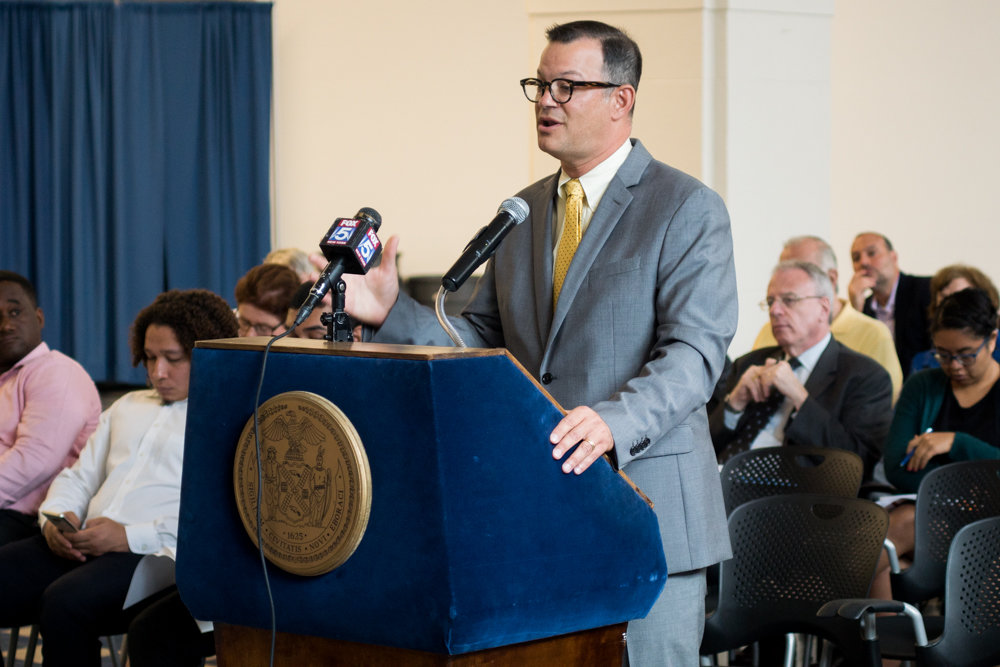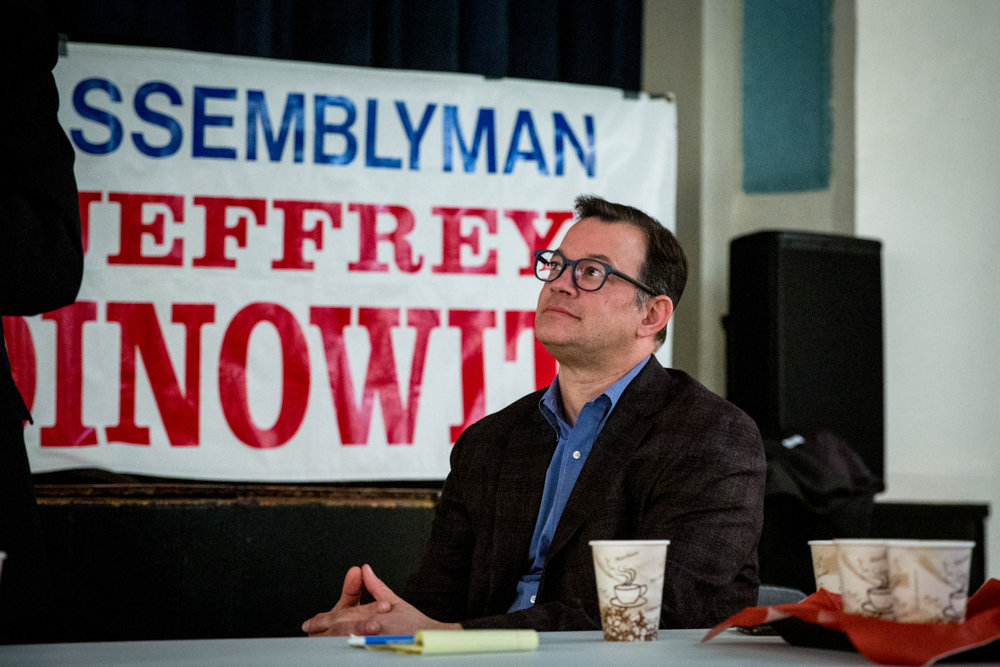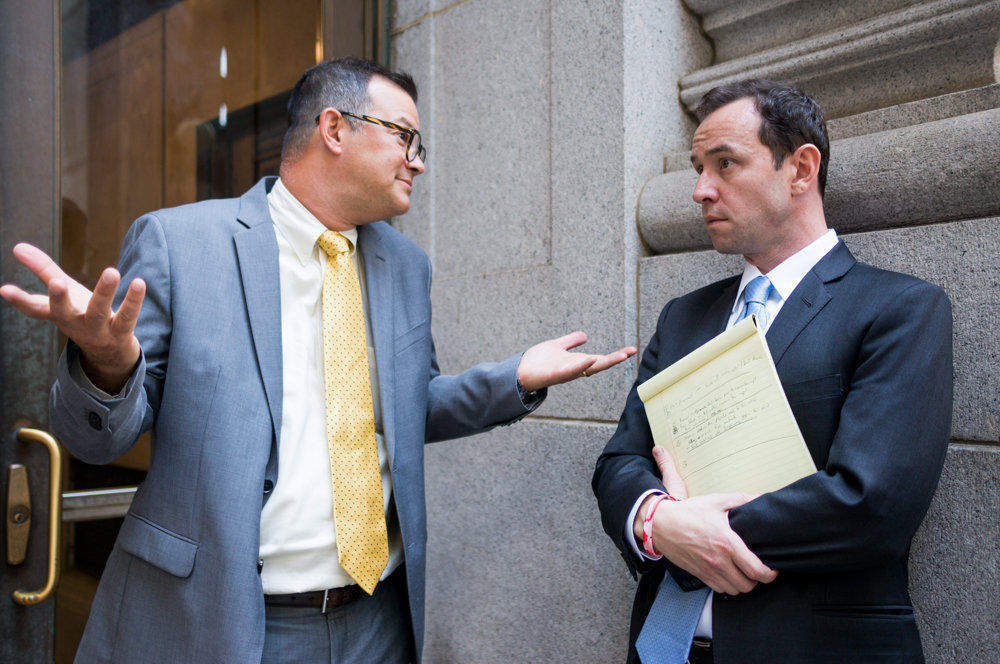Cohen’s e-bike caution cracks flawless enviro streak
For years, Andrew Cohen has batted a thousand when it comes to tackling key environmental issues — at least in the eyes of the New York League of Conservation Voters. And although his score on that count slipped slightly this year, that’s not to say the councilman is less focused on helping the borough’s green spaces flourish, or fending off further destruction of what some environmental groups fear is an already imperiled planet.
The conservation league released its annual city council environmental scorecard earlier this month, grading council members on their support of environmental issues over the past year. The Bronx delegation earned some perfect scores from Fernando Cabrera, Rafael Salamanca and Ritchie Torres.
But not Andrew Cohen. He fell to 85.
The culprit? Electric bicycles and scooters — something Cohen has been a bit slow to support. It stems from a pair of transportation bills from Brooklyn Councilman Rafael Espinal Jr., that would support e-bicycle conversion, as well as an electric scooters pilot program.
Both bills have wide support on the council, with more than 30 names each. But none of them are Cohen’s.
The first bill would require the city’s transportation department to create a program to help low-income riders who own throttle-operated electric bicycles to instead covert them to pedal-assist electric bicycles. Throttled e-bikes have become “ubiquitous” on the city’s streets, and delivery workers rely on them heavily, the conservation league said. But it’s not currently legal to operate them within the city, leaving these workers subject to heavy fines and even confiscation, despite being a sustainable transportation mode.
Pedal-assist bicycles travel more slowly, however, and require the rider to pedal in order to receive an extra boost from the motor, which the league believes makes them a safer zero-emission transportation option while still protecting workers.
The other Espinal bill would require DOT to establish a pilot program for shared electric scooters, prioritized for neighborhoods that lack transit options or don’t have existing bike share programs, as well as those affected by the L train tunnel reconstruction.
The bill is part of a package that also would legalize certain electric scooters. The conservation league believes it would offer commuters yet another form of zero-emission transportation, increasing mobility while reducing congestion and emissions in neighborhoods that need it most.
But Cohen’s not quite sold yet on either.
“I just feel like I need more information,” he said. “I need to have a greater understanding of what their impact is going to be on the community, how they’re going to be used. I wasn’t going to just sign on for the sake of the rating. I think that there needs to be a broader discussion about how these electric vehicles are going to work on our street and what the impact is going to be.”
And yet, the fact Cohen didn’t sponsor them right off the bat doesn’t mean he wouldn’t reconsider down the line.
E-bikes and e-scooters “could be great,” he said, but they “could also be dangerous.”
Overall, 21 members received a perfect score on the conservation league survey, while 44 notched at least 80. Each score is calculated based on voting and sponsorship records on 13 key environmental bills identified in the scorecard that promote clean energy, improve public health, and encourage sustainable transportation.
The league, founded in 1989, consulted with various transportation, environmental justice, public health, conservation and parks organizations to select which measures would make the scorecard, drafting an initial list of more than three-dozen bills. This year’s scorecard included measures for expanding investigations for lead poisoning, authorizing small wind turbines, and even phasing out diesel school buses.
Council members earned points by casting what the league deemed pro-environment votes or by co-sponsoring bills, with negative votes counting against their final scores.
The league describes itself as the only non-partisan statewide environmental organization that takes a “pragmatic approach” to fighting for clean water, healthy air, renewable energy and open space. But it’s also the only organization that provides a city council environmental scorecard, which it bills as an independent assessment of the council’s record that’s key for determining which council members are working to protect the environment — and which aren’t.
“With the executive branch in Washington undermining years of environmental progress, it is more important than ever for local governments to fill that void,” league president Julie Tighe said, in a release. The city is poised to lead the way, but it starts with implementing “innovative” — and potentially “disruptive” — policies because cities across the nation “are watching closely, and often follow our lead.”
While the citywide average score hasn’t changed much, there was some notable fluctuation at the borough level. Brooklyn, the city’s most populous borough, stood out with an average score of 94, compared to 87 last year — by far the most improved. In fact, more than half of Brooklyn’s delegation received perfect scores.
That’s in stark contrast to Staten Island, which scored lowest for the fifth consecutive year, with an average of just 46.
The average this year was 88, which the league considers a great sign, while just five lawmakers — including Councilmen Ruben Diaz Sr., and Andy King — received a failing score. Moreover, several key committee chairs aced the league’s assessment, including transportation committee chair Ydanis Rodriguez, and Cabrera, who chairs the governmental operations committee.
Cohen, meanwhile, had notched a perfect score every year since he took office in 2014.
“I’m just not at a comfort level that this has been thought through enough that it will be done in a safe, thoughtful manner,” the councilman said. “We’re all sharing this common space for the roadway — pedestrians, cars, bicyclists, for-hire vehicles. In this sort of competition for using the space, I just don’t feel that there’s been enough work done on how this is going to fit in.”

